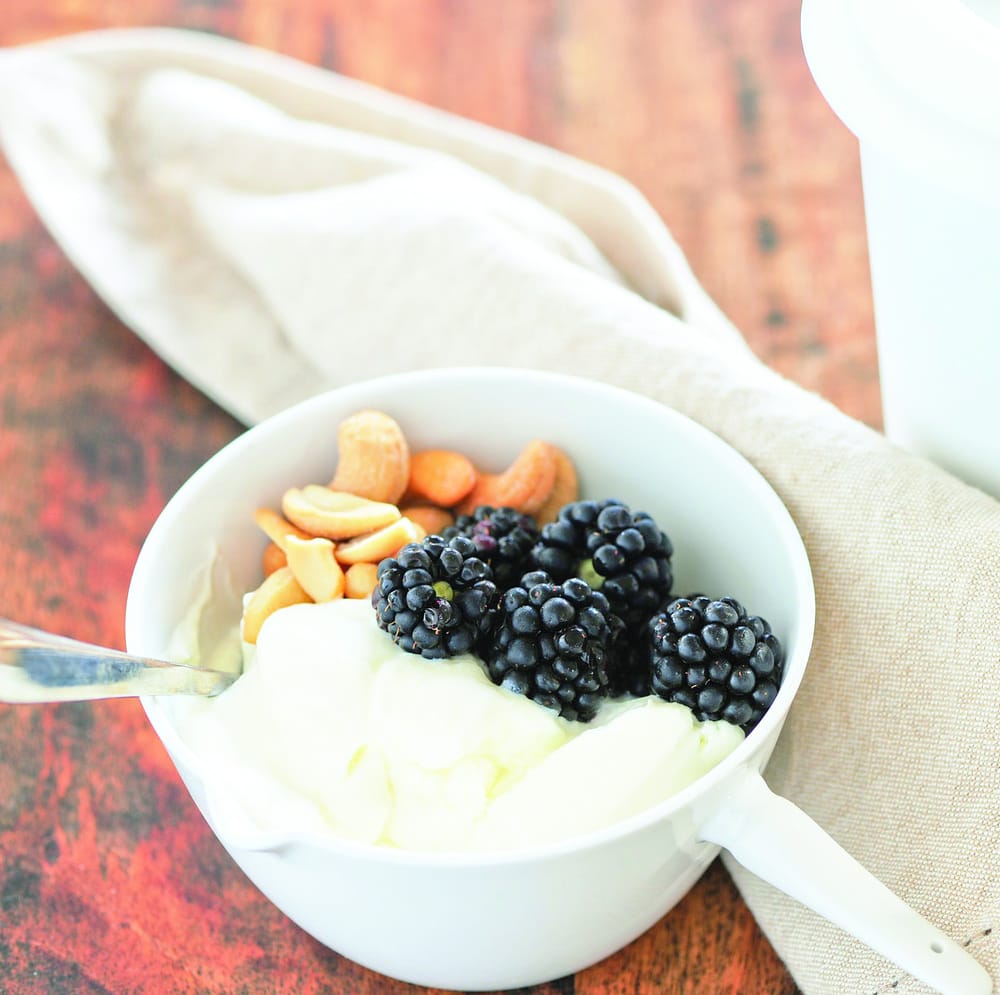Creamy heavenly probiotic goodness
We talk yoghurt in our weekly nutrition column

I was perusing ‘What to Eat’ by the fabulous nutrition professor Marion Nestle, and was particularly intrigued by her short piece elucidating all the hoo-ha around yoghurt. Say the word ‘yoghurt’ just once and you’re more likely than not to get a ho-hum reaction. Is it a health food? Breakfast? Dessert? And wait – is greek yoghurt actually from Greece? Well, let’s start with the basics. Yoghurt is essentially fermented milk. That 180g tub you’re holding right now has at least 100 million living Lactobacillus and Streptococcus bacteria per gram. That’s 18 billion live bacteria going in your gut. You start off with a milk of some sort, be it skimmed, whole or low-fat, and that’s pasteurised to kill any unwanted bacteria. Then the friendly bacteria cultures Lactobacillus bulgaricus and Streptococcus thermophiles are added, together with ‘hardier’ cultures acidophilus and bifudus strains because the former two are more delicate, otherwise known as the weakling strains. Whatever the type, they all work hard to digest the milk nutrients, producing plenty of lactic acid in the process, the substance that gives yoghurt its characteristic tang. Many of these strains are capable of replacing harmful bacteria in the gut; therefore yogurt is typically categorised as the holy grail of gut health.
A large body of research has proven that Acidophilus, along with some other Lactobacillus and Bifidus strains, do actually survive the digestion process, which is not entirely surprising given the fact that most are already present in the human gut anyway. These lovely creatures also consume lactose in dairy products, making yoghurt (or even your froyo – yes!) more tolerable to those who are lactose-intolerant. Furthermore, a group of scientists in 2004 wrote a particularly comprehensive review on how yoghurt cultures, be it those weaklings or the hardier boys, are capable of alleviating symptoms of constipation, inflammatory bowel disease and even colon cancer.
The problem lies in the mass-produced versions. I get a little cranky thinking about how much sugar is stuffed into brands marketed for toddlers and older children– more than half of your typical GO-GURT tube is pure sugar. Same goes for Stonyfield’s YoBaby organic yoghurts. All the ‘low-fat’ labelling doesn’t help, because it usually means all that fat is just replaced with sugar. I’d think it would be a far better idea to teach children how to appreciate something other than ‘sweet’, and leave the sugary stuff for real dessert. It’s fine to give into the sugar-injected yoghurt and granola pots once in a while, but on your holier days, try leaving the dairy aisles with ‘bio’ yoghurt, or unflavoured sorts with plenty of live bacteria, and the fewest sweeteners and chemical additives. Shun your inner American.







